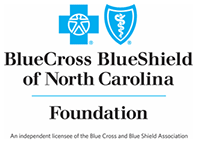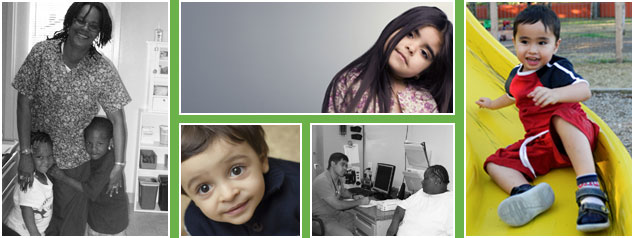Helping homeless women and children
We provide free healthcare to those who need healthcare the most, yet have the least access.
Shelter Health Services is a free health clinic providing healthcare and medical services to uninsured, medically indigent, homeless women and children living in poverty and staying in the Salvation Army Center of Hope, the largest number and concentration of homeless women and children in the southeast (other than Miami). All shelter residents may access our free walk-in clinic simply by showing their shelter ID. Lacking money, Medicaid and mobility, for most of our clients, the free clinic is their only source of healthcare.
LEARN MORE
Enabling self-sufficiency
Our mission focuses on the end-benefit of having access to our clinic. To remove health issues as barriers to self-sufficiency and upward mobilty for homeless women, and as impediments to development and readiness to learn for homeless children, by providing free healthcare and medical services that are easily accessible. Attaining self-sufficiency is the most effective way out of homelessness. Being healthy enough to find and keep a job, afford independent housing and become a part of the community is what virtually every woman in the shelter is trying to achieve. For children, health issues can negatively impact educational, emotional, mental, behavioral, social and even recreational development.
We address and remove barriers to receiving healthcare including ease of access (located within the shelter, where our clients live), ease of use (prompt, walk-in care, Monday – Friday, 9:30 to 6:00. No appointments needed. No delays in receiving care), affordability (all clinic services are provided free, including prescriptions) and continuity of care (unlimited number of visits offers clients a medical home for acute, primary and prevention care). Our Extended Care Program allows both adults and children clients to access the clinic’s free services even after they have left the shelter.
LEARN MORE
Integrated services and care
For underserved populations, care is usually fragmented, provided as separate and disparate services, from separate and disparate agencies. Since improvement in heath issues are inherently linked, services should also be inherently linked.
Linkage of healthcare, medical, mental health and specialty services (mammograms, dental, vision) align all needs with care and services resulting in an integrated and seamlessly delivered system of care. Health assessments transcend individual issues in favor of a comprehensive, holistic approach. Needs are addressed simultaneously rather than sequentially to optimize improvement in the short shelter stay of 3 to 6 months. Clinic “Care Team” of Medical Assistant, Registered Nurse and Family Nurse Practitioner identify needs, matrix services and mobilize in-clinic and collaborative resources to provide appropriate levels of care within the timeframe needed to maximize health outcomes.
Our direct network is comprised of multi-agency collaborations and partnerships, all of which are located within the Center of Hope. Salvation Army Center of Hope provides access to this underserved population and rent-free space. Mecklenburg County SACOT substance abuse treatment provides counseling. Family First provides mental health assessment and counseling. Anuvia provides mental health medication management. Co-assessment of medical, mental health and substance use needs integrates services of these agencies into the clinic’s medical care. 37% of clinic clients have mental health and/or substance use needs that require professional intervention. Of these, 73% have a medical co-morbidity. Close proximity of these collaborativer partners within the Center of Hope fosters linking services and integrating care.
Collaborative services that require specialized expertise or technology are brought to the clinic. Novant Cancer Center brings their mobile imaging van to the clinic to provide free mammograms and provides low-dose CT scans for early detection of lung cancer at their imaging facility. We recruit heavy smokers at risk of lung cancer. Transportation expense is shared between Shelter Health Services and Novant Cancer Center. Ada Jenkins Center dental van brings quality dental care to the clinic. RAIN provides counseling and support for HIV+ clients.
Referral partners include: MedAssist for expensive prescription medications, like insulin. Gilead for PrEP. Lions Club Eye Clinic for eye exams, prescriptions, lenses and frames.
Response to COVID-19
The Center of Hope is a communal living shelter. Social distancing is difficult. COVID-19 is the kind of virus that can grab hold of a population, infect and kill. Without the clinic, the women and children in the shelter would lack COVID-19 screening and testing, and access to other healthcare and medical services.
Many healthcare facilities are focusing on COVID-19, defering other healthcare services needed by patients to limit contact and risk of exposure. Our clinic, located within the Center of Hope shelter, is on the front line of identifying COVID-19 in this potentially high risk population. Our heroic medical staff continues to provide the full mix of services needed by the women and children including COVID-19 screening and testing, and very importantly, other healthcare and medical services.
 Adjustments have been made in how we deliver our services. For maximum ventilation, services are provided outdoors, under tents, instead of in the clinic. Staff wears full Personal Protective Equipment at all time – face shields, safety goggles, N95 respirator face masks, gowns and gloves. Perimeter is cordoned off with yellow “caution” tape to be inviting yet maintain a safe distance between the staff and those waiting to be seen. Clients are seen one-by-one in a highly controlled manner. All that visit the tent are screened for COVID-19, but their reasons may be something else. Blood pressure check for hypertension. Prescription refills of needed medications. OTC medications for everyday illness. Minor injuries. Emergencies continue to occur. When our staff calls 911, the care provided between the call and time EMS arrives can spell the difference between life and death.
Adjustments have been made in how we deliver our services. For maximum ventilation, services are provided outdoors, under tents, instead of in the clinic. Staff wears full Personal Protective Equipment at all time – face shields, safety goggles, N95 respirator face masks, gowns and gloves. Perimeter is cordoned off with yellow “caution” tape to be inviting yet maintain a safe distance between the staff and those waiting to be seen. Clients are seen one-by-one in a highly controlled manner. All that visit the tent are screened for COVID-19, but their reasons may be something else. Blood pressure check for hypertension. Prescription refills of needed medications. OTC medications for everyday illness. Minor injuries. Emergencies continue to occur. When our staff calls 911, the care provided between the call and time EMS arrives can spell the difference between life and death.
Please make a donation to our COVID-19 Response Fund. Our response to meet the needs of the women and children that rely on the clinic for their healthcare and safety from COVID-19 is incurring significant, unexpected incremental expenses. Personal Protection Equipment is changed everyday, for some PPE items multiple times a day. Walkie-Talkies were purchased to provide a communications link. Even with 50 pound sand bags around the bases of each tent, two care station tents have been twisted and destroyed by winds and had to be replaced. COVID-19 protocols extend the time it takes to see clients, increasing staff time expense. Plus attending to other health issues incurrs diagnostic testing and screening supplies and materials, prescription and OTC medications and continual cleaning and sanitizing by contract services and staff.
Our services and programs are continuously responding to meet new healthcare and medical needs of the women and children we serve. COVID-19 is a good example.






